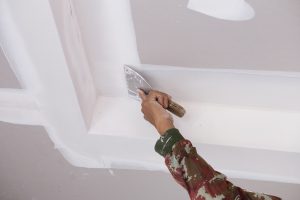- Choose quality materials that are up to local building codes.
- Consider classic quartz countertops for the kitchen.
- Hire reliable contractors with research and get everything in writing.
- Be prepared for unexpected costs.
- Check the credentials and insurance policies of contractors.
- Use sustainable practices during construction.
Building a home is a long and complicated process that requires careful thought and consideration. You want your home to be safe, comfortable, and built to last. After all, you’ve spent a lot of money and probably a considerable amount of time ensuring that your dream home is realized.
Fortunately, there are some steps you can take to guarantee that your house is built correctly and constructed with the necessary materials to last for many years. Here are some practical tips to help ensure that your home is built correctly:
Choose Quality Materials
The materials you use for your home will determine how durable it is in the long run. Make sure you choose high-quality materials that can stand up to wear and tear over time. Also, ensure the materials you use are up to local building codes, as this can affect the legal status of your property. Wood is one of the best materials for durability. Still, other materials, such as brick or stone, can also be used for a strong construction.
As for the kitchen, using classic quartz countertops is a great way to ensure that your kitchen looks beautiful and is made to last. This material is durable, easy to clean, and can add value to your home, so it’s worth spending the extra money on.
Hire Reliable Contractors

Deciding to build a home is a significant decision, and it’s essential to make sure you have the right contractor to help bring your vision to life. But how do you know which builder is the right one for you? Here are some key things to consider when hiring a contractor to build your home.
Research Your Options
An internet search is an excellent place to start. Look for reviews online, check out the company website, or ask for recommendations from people who have recently built their own homes. Make sure you are familiar with the different types of construction companies in your area and what they specialize in. Some builders may work exclusively with certain materials or architectural styles, so find out if they can accommodate your project before signing a contract.
Ask Questions & Get Everything In Writing
Once you’ve identified a few potential contractors, make sure you ask them all the same questions so that you can compare answers accurately. Ask about their experience building homes like yours, their timeline and budget expectations, as well as any other details related to the job itself—such as whether they will be using subcontractors and if there are any additional fees associated with their services. And don’t forget to get all estimates in writing! This will help ensure that everyone is on the same page when it comes time for payment.
Be Prepared For Unexpected Costs
No matter how thorough your research and planning process may be, unexpected costs can still arise during the course of building your home. Make sure you have an estimated budget set aside so that you are prepared for any issues arising during construction. It’s also essential to evaluate each contractor’s financing options—some may offer financing plans that could work better for your budget than others.
Check for Credentials and Insurance
Be sure to ask potential contractors about their credentials and make sure they are correctly insured. This is important in order to protect yourself from any liabilities that may arise during the construction process. Ask for copies of certifications, licenses, and insurance policies before signing any contracts. If a contractor cannot provide proof of credentials, it’s best to move on and find another who can.
Use Sustainable Practices

Using sustainable practices during construction will help ensure that your home lasts longer while also protecting the environment around it. This includes using energy-efficient appliances, installing solar panels or wind turbines if available, using recycled material where possible, and avoiding single-use items during construction, such as plastic packaging or Styrofoam insulation.
Moreover, installing proper insulation in the walls, ceilings, and floors will help keep your home comfortable while also reducing energy costs. This can also help reduce your carbon footprint.
Final Thoughts
Building a lasting and durable home takes careful planning and consideration, so it’s important to take all necessary steps before beginning construction on your new house! Be sure to choose quality materials that meet local building codes, hire reliable contractors who understand your vision; and use sustainable practices throughout the entire process in order to ensure a successful build that will last for years to come!






